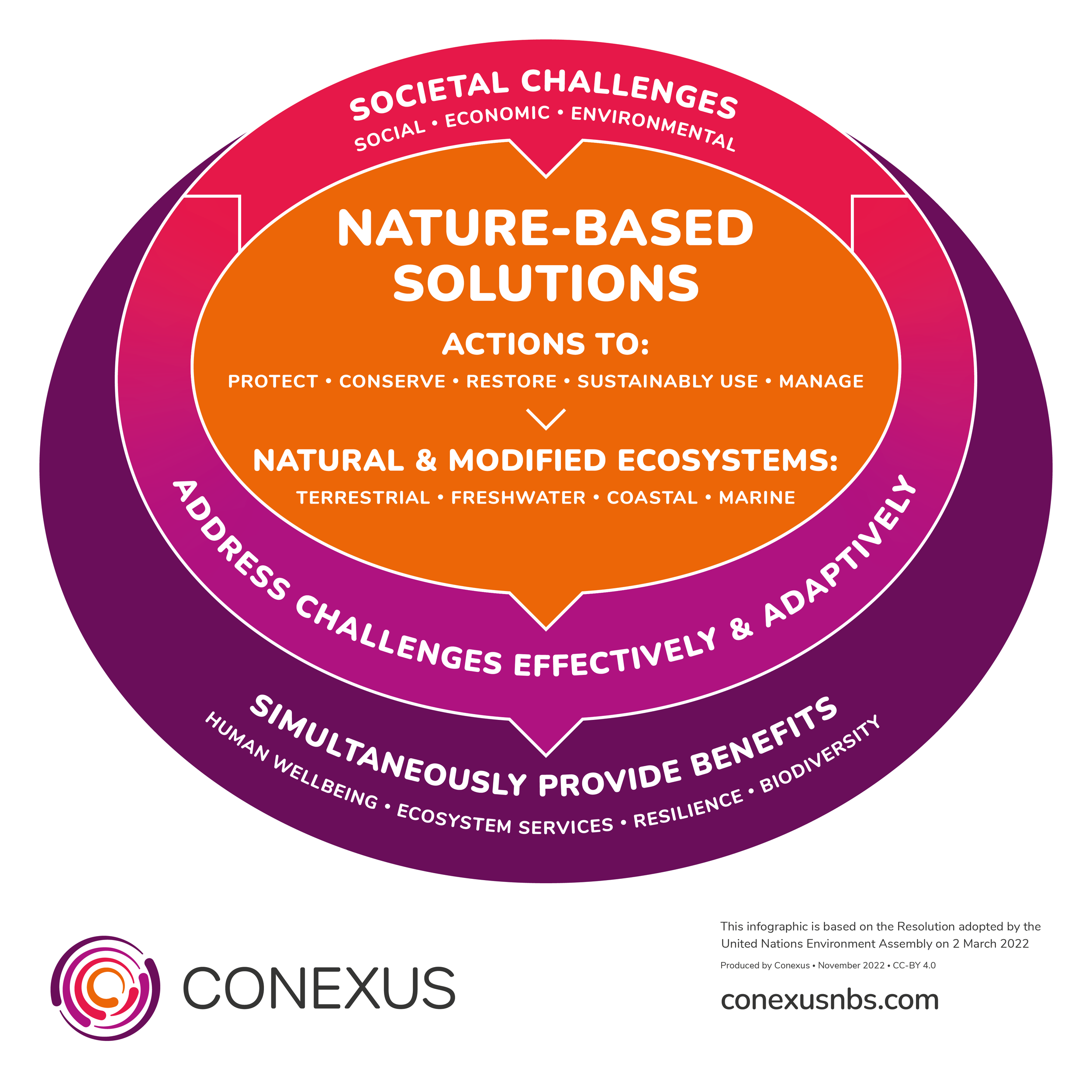
Nature-based solutions definition infographics
The adoption of the globally agreed definition of nature-based solutions by the UN Environment Assembly in March 2022 was a great boost to international collaboration. It placed the focus sharply on accelerating the implementation of nature-based solutions to tackle societal challenges.
Conexus project partners are already working to implement innovative nature-based solutions in Latin America and Europe with a particular focus on Life-Labs in São Paulo, Bogotá, Santiago, Buenos Aires, Lisbon, Barcelona and Turin.
To help raise awareness and understanding of the globally adopted definition of nature-based solutions Conexus developed two infographics that communicate the definition clearly. The infographics were co-produced by Conexus partners led by Grupo Verde, LALI, Oppla and The University of Sheffield. They are available in English, Spanish, Italian and Portuguese.
The first infographic introduces the main clause of the definition: “that nature-based solutions are actions to protect, conserve, restore, sustainably use and manage natural or modified terrestrial, freshwater, coastal and marine ecosystems which address social, economic and environmental challenges effectively and adaptively, while simultaneously providing human well-being, ecosystem services, resilience and biodiversity benefits.”
The second infographic recognises the vital importance of the wider framing of the definition that nature-based solutions:
Respect social and environmental safeguards, in line with the three “Rio conventions” (the Convention on Biological Diversity, the United Nations Convention to Combat Desertification and the United Nations Framework Convention on Climate Change), including such safeguards for local communities and indigenous peoples.
Can be implemented in accordance with local, national and regional circumstances, consistent with the 2030 Agenda for Sustainable Development, and can be managed adaptively.
Are among the actions that play an essential role in the overall global effort to achieve the Sustainable Development Goals, including by effectively and efficiently addressing major social, economic and environmental challenges, such as biodiversity loss, climate change, land degradation, desertification, food security, disaster risks, urban development, water availability, poverty eradication, inequality and unemployment, as well as social development, sustainable economic development, human health and a broad range of ecosystem services.
Can help to stimulate sustainable innovation and scientific research.
Both infographics have been shared under a Creative Commons Attribution Licence (CC-BY 4.0) so they can be freely used and adapted. They were shared at the COP15 meeting in Montreal. Contact the project team if you would like the graphics in other formats to help support your work.



